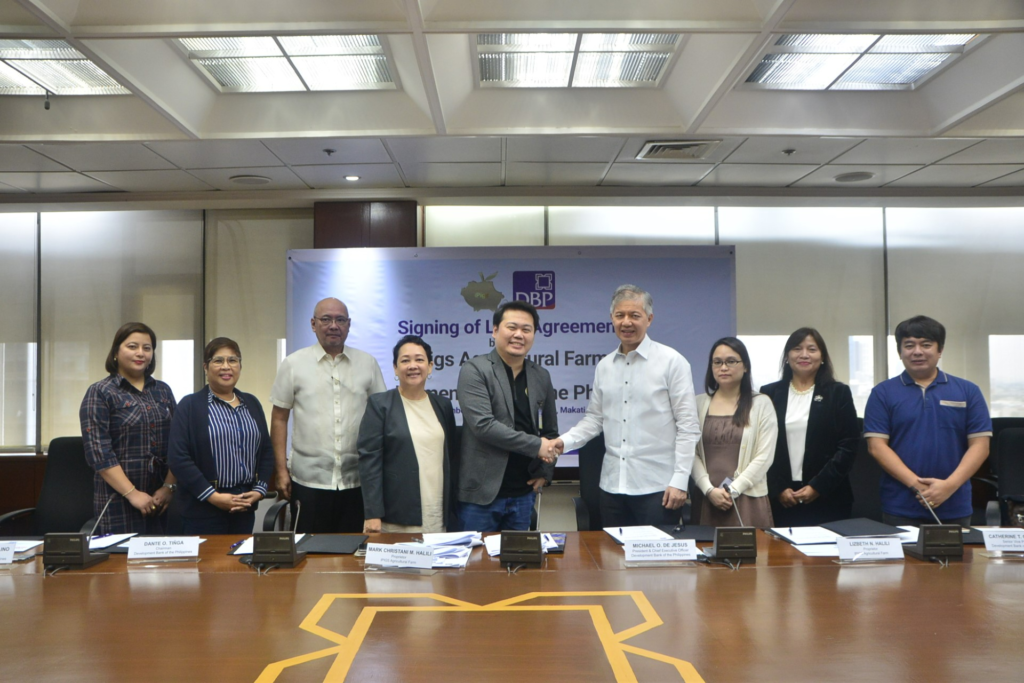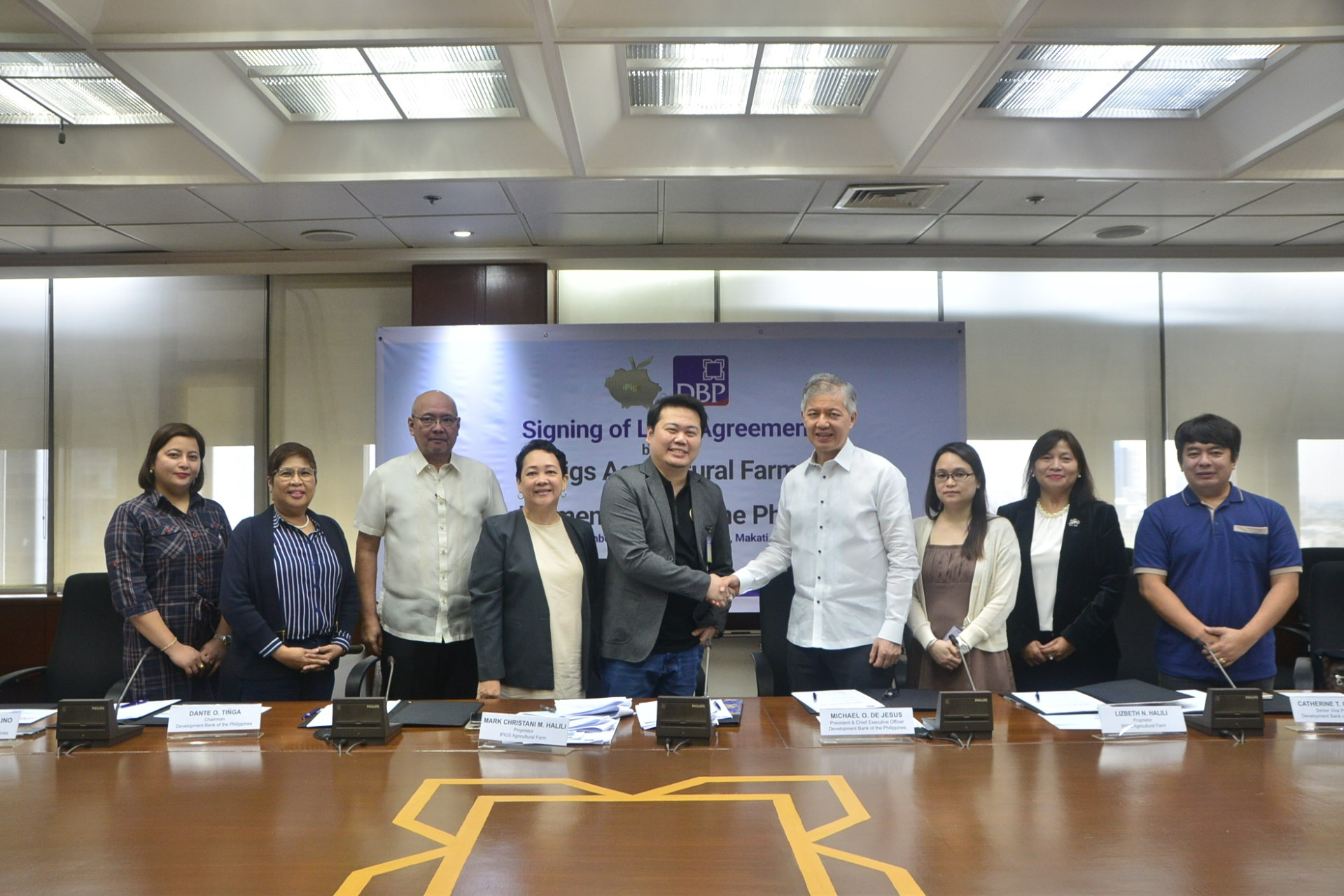The Philippine agriculture sector has long been beset with a constant struggle for the supply of feeds for the swine industry and the production of corn, which is a main source of feed for pigs, has yet to catch up with the demand.
Add to this the prevalence of African Swine Fever (ASF), a serious viral disease now affecting swine with an almost 100% fatality rate. This is why industry experts are saying that biosecurity measures are necessary to ensure pathogen segregation to avoid physical contact and shared air among pigs of different ages.

Photo shows DBP President and Chief Executive Officer Michael O. de Jesus (sixth from left) shaking hands with iPigs Agricultural Farm proprietor Mark Christani M. Halili. Also in the photo are (from left): DBP Assistant Vice President Kristine Joy Yambao, DBP Senior Vice President Ana Marie Veloso, DBP Executive Vice President Reynaldo Orsolino, Atty. Kathryn Zarate of DBP, Lizbeth Halili of iPigs Agricultural Farm, DBP Senior Vice President Catherine Camarao, and Michael Telada of iPigs Agricultural Farm.
State-run Development Bank of the Philippines (DBP) know this only too well, that’s why it has recently extended a P116-million term loan for the construction of a swine bio-secured farm project in Nueva Ecija.
According to a top official of DBP, the loan grant is in support of the national government’s thrust of modernizing the agriculture sector. The project is also expected to help address some of the key concerns in the swine industry.
Swine Repopulation, Rehabilitation, and Recovery (SWINE R3) project
DBP President and Chief Executive Officer Michael O. de Jesus said the loan granted under its Swine Repopulation, Rehabilitation, and Recovery (SWINE R3) Credit Program will jumpstart the expansion of iPigs Agricultural Farm in Laur, Nueva Ecija.
“DBP is excited to fund this initiative aligned with the vision of President Marcos, Jr. of promoting a competitive and sustainable agriculture sector as a means to achieve poverty reduction and inclusive growth, as well as in ensuring sufficient food supply in the country,” he said.
DBP is the eighth largest bank in the country in terms of assets and provides credit support to four strategic sectors of the economy – infrastructure and logistics; micro, small and medium enterprises; the environment; and social services and community development.
iPigs Agricultural Farm, which began operations in 2021, has an existing swine contract growing agreement with Charoen Pokphand Foods Philippines Corporation (CPFPC), the local subsidiary of the Thailand-based conglomerate with investments and partnerships in 17 countries worldwide.
De Jesus said DBP will be financing the construction of seven duplex-type, wean-to-finish piggery buildings of iPigs Agricultural Farm located in a 12.6-hectare property in Laur, Nueva Ecija.
He said the loan was one of the first granted under SWINE R3 facility, a lending program aimed to boost government efforts to repopulate the local swine industry through the financing of medium and large-scale swine projects.
“As of October 2023, total loan approvals under the SWINE R3 Credit Program have reached P2.6-billion for 16 accounts,” de Jesus said, adding that “…DBP is ready to fund more projects to ensure the continued availability of pork and pork products in the market…”








